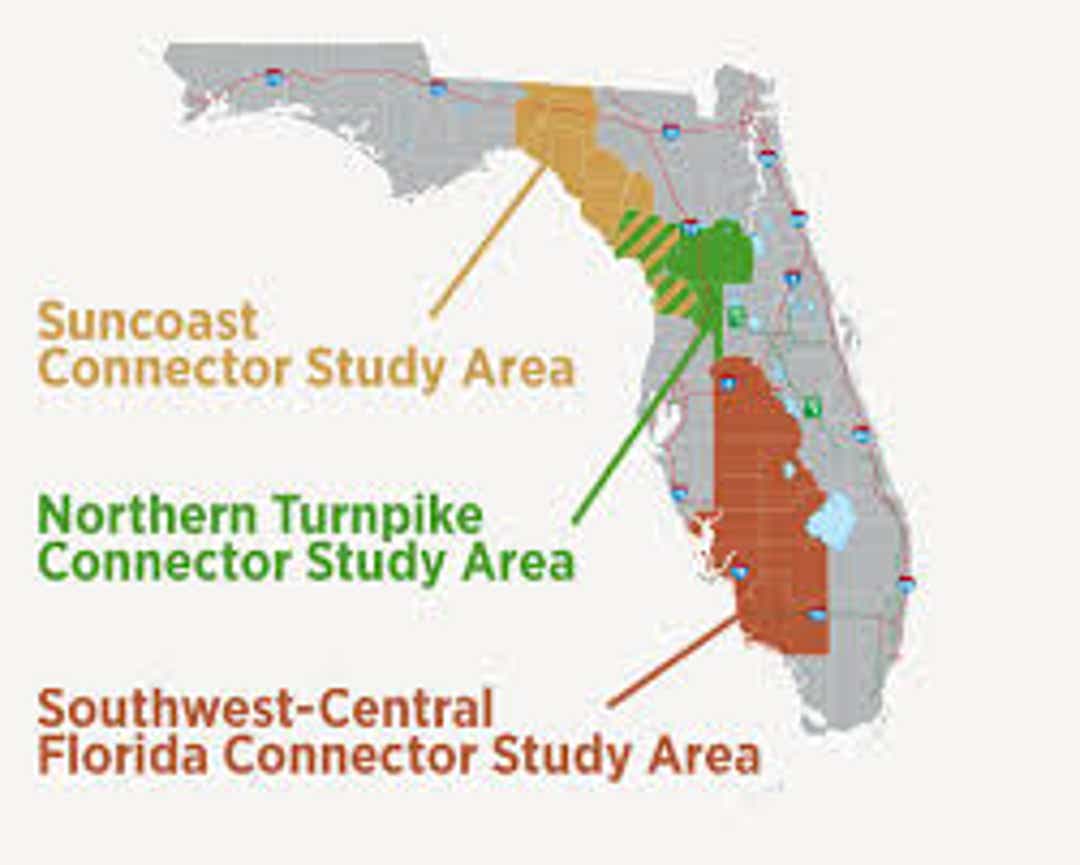New study refutes benefits of 3 proposed toll roads in Florida
Karl Schneider Naples Daily News
Published 4:39 PM EDT Sep 16, 2020
A consulting group refuted a handful of intended benefits of a proposed statewide toll road system in a new study released Wednesday.
Cornell Consulting, a student-run group out of Cornell University, concluded the Multi-use Corridors of Regional Economic Significance, known as M-CORES, will not benefit hurricane evacuations, traffic congestion or broadband access. The group also found the toll road project would create negative economic returns.
“We can summarize this as a gross misuse of funds that will cause a financial strain for (the Florida Department of Transportation),” said William McGrath of Cornell Consulting.

The M-CORES project is broken into three corridors throughout the state, each with its own task force. The proposed sections of the toll roads are the Suncoast Connector, the Northern Turnpike Connector and the Southwest-Central Connector, which would run from Collier County to Polk County.
"Possible improvements could include other transportation modes – including freight and passenger rail, public transit and trails – and broadband, water and sewer connectivity, while protecting Florida’s most precious environmental and historical resources and enhancing economic prosperity," FDOT spokeswoman Beth Frady wrote in an email.
More: Task force members still confused about process, need for proposed toll roads
And: Department of Transportation panel cites broadband in pitch to build new toll road between Orlando and Naples
Each area’s task force must provide a final evaluation to the Florida Legislature by Nov. 15, though some members on the southwest task force remain unconvinced the roads are needed, according to previous reporting by The News-Press.
FDOT lists a myriad of potential benefits M-CORES could provide on its website, and more efficient hurricane evacuations is listed at the top. The consulting group, however, concluded that using contraflows, or opening all highway lanes to move away from a hurricane’s path, would be a better option if done efficiently.
“The premise that M-CORES will reduce congestion and aide in evacuation ignores quicker and cheaper alternatives,” consultant Justin Zhang said. “What we found was the efficiency of contraflows is really dependent on the number of initiation and termination points. And in the past, Florida hasn't really been using those points efficiently.”
Where these reverse lanes start and stop needs to be constantly re-evaluated, the study says.
During Hurricane Irma, U.S. 19 northbound experienced a more than 4,000 percent increase in traffic, Frady wrote. As well as possibly providing extra evacuation routes, she wrote that the toll roads could also improve access and staging for utility and emergency vehicles.
Providing rural areas of the state with broadband access is another intended benefit of the roadways, yet the consultants said it would be more cost effective and environmentally sound to add that access to the already existing aerial infrastructure.
Aerial access would also reduce any impacts to Florida’s wetlands and waterflow areas, consultant Gayatri Sriram said. These rural communities rely on above-ground power lines for electricity, and attaching a fiber optic cable to existing conduits could be the easier option.
“If Florida wants to improve access to data, I say go for it, but don’t be foolish,” she said. “There is a cheaper, eco-friendly option to deploy broadband and improve local economies.”
M-CORES is still in a pre-planning phase, Frady wrote, and "per law, any proposed corridor must meet environmental and financial feasibility or they cannot be constructed."
COVID-19 has brought a devastating impact to the families and communities in Florida, said Sadaf Knight, CEO of the Florida Policy Institute, a nonprofit, public policy research group.
“The revenue needed to fund this project should instead be used to bolster the state budget and preserve critical public services,” she said. “And this is especially true given that the Cornell Consulting analysis shows that the project will not deliver on its promised outcomes. It's not fully feasible and it will bring environmental harms to our natural resources.”
Karl Schneider is an environment reporter. Follow him on Facebook and Twitter: @karlstartswithk, email him at kschneider@gannett.com
More: Tiny Alva community battles massive statewide toll road plan
And: Proposed toll road draws concerns from some environmental groups
tinyurlis.gdu.nuclck.ruulvis.netshrtco.de
